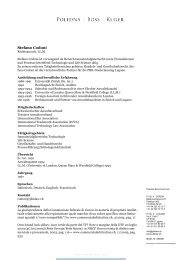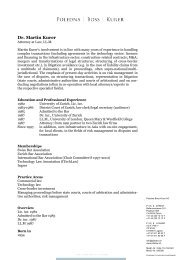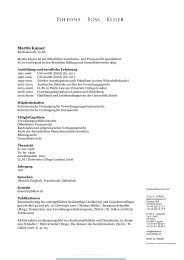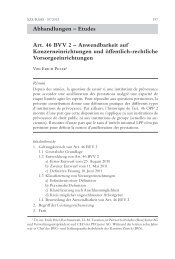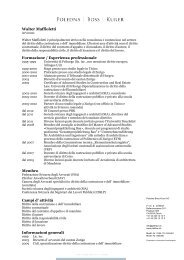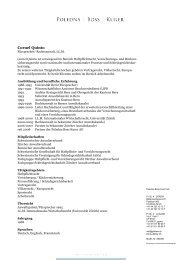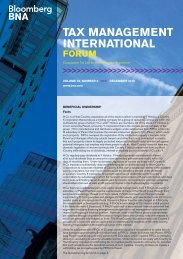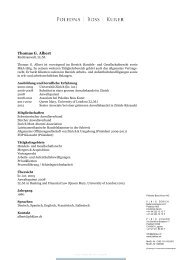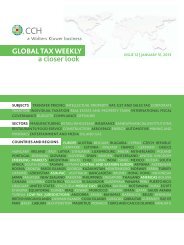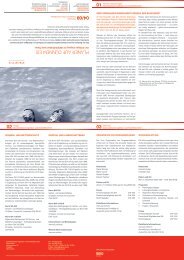721.8 kB - Poledna | Boss | Kurer
721.8 kB - Poledna | Boss | Kurer
721.8 kB - Poledna | Boss | Kurer
- No tags were found...
Create successful ePaper yourself
Turn your PDF publications into a flip-book with our unique Google optimized e-Paper software.
where the taxpayer had somehow offset or recoveredthe tax paid, and that national law has thepower to limit the repayment claim of a taxpayerin such a situation.http://curia.europa.eu/juris/document/document.jsf?text=&docid=137423&pageIndex=0&doclang=EN&mode=lst&dir=&occ=first&part=1&cid=2973965The ECJ concluded by pointing out that the taxpayerhad received a greater amount of aid due tothe inclusion of the non-deductible VAT in the calculationthan it would have if the VAT had beendeductible from the beginning; therefore in orderfor the taxpayer to be adequately compensatedbut not unjustly enriched, the repayment amountshould be the difference between the VAT that thecompany should have been allowed to deduct andthe extra amount of aid it received due to the VATbeing non-deductible.The Court stated in conclusion that:"The principle of repayment of taxes levied in aMember State in infringement of the rules of EUlaw must be interpreted as meaning that it doesnot preclude that State from refusing to repay partof the value added tax, the deduction of which hadbeen precluded by a national measure contraryto European Union law, on the ground that thatpart of the tax had been subsided by aid grantedto the taxable person and financed by the EuropeanUnion and by that State, provided that theeconomic burden relating to the refusal to deductvalue added tax has been completely neutralised,which is for the national court to determine."The judgment was delivered on May 16, 2013.European Court of Justice: Alakor Gabonatermelo ésForgalmazó Kft. v. Hungary (C-191/12)NetherlandsTh e European Court of Justice was asked for apreliminary ruling during proceedings at the SupremeCourt of the Netherlands where the tax authoritywas appealing a Court of Appeal decisionthat a taxpayer acting as a trader could deductthe VAT imposed on a transfer of shares. The SupremeCourt instead considered that the transferwas an economic activity that was exempt fromVAT, but was aware that in a past case the ECJhad stated that VAT may be chargeable "wherethat disposal may be regarded as equivalent to thetransfer of a totality of assets or part thereof". TheSupreme Court therefore addressed the ECJ concerningthis matter, with regard to the facts of thepresent case.The ECJ first stated that according to case law atransfer of shares cannot be regarded as a "transfer ofa totality of assets" when it is not sufficient enoughto establish an independent economic activity thatcan be carried out by the transferee. It then consideredwhether the fact that the total shares of acompany were being transferred to a single entityby companies including the taxpayer had any impacton the Court's deliberations. The decision was95



